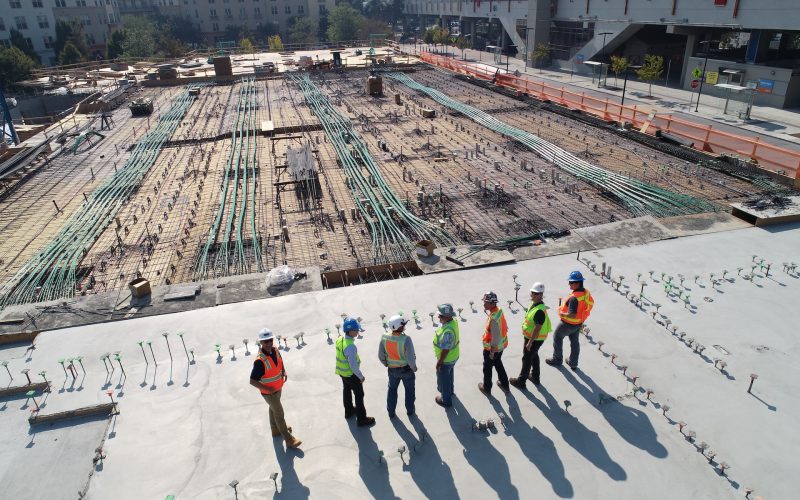Construction projects are complex endeavors that require careful planning, skilled labor, and financial resources. To ensure that projects are completed successfully, various stakeholders, such as project owners, require a guarantee of performance and payment from contractors. This is where construction bonds come into play. In this article, we will explore the definition of construction bonds, how they work, the requirements for obtaining them, and the different types available.
Simpli Surety Bonds is a reputable provider of bonding solutions, offering a user-friendly online platform. With their extensive industry knowledge and dedication to exceptional customer service, Simpli Surety Bonds simplifies the bond application process for individuals and businesses.
How Construction Bonds Work
The process of obtaining a construction bond typically involves three parties: the project owner (obligee), the contractor (principal), and the surety company (surety). The surety company acts as a guarantor and assumes responsibility for the contractor’s performance and financial obligations.
When a construction bond is issued, it establishes a legal contract between the three parties. In the event of the contractor’s failure to complete the project or meet contractual obligations, the project owner can make a claim against the bond. If the claim is valid, the surety company will step in to ensure the project’s completion or compensate the project owner accordingly.
Types of Construction Bonds
There are three main types of construction bonds:
Bid Bonds: Bid bonds are submitted by contractors as part of the bidding process. They provide financial assurance to project owners that the contractor will enter into a contract and provide the required performance and payment bonds if awarded the project.
Performance Bonds: Performance bonds guarantee that the contractor will complete the project according to the contract specifications and within the agreed-upon timeframe. If the contractor fails to do so, the surety company will step in and arrange for the project’s completion or compensate the project owner.
Payment Bonds: Payment bonds protect subcontractors, suppliers, and laborers involved in the project by ensuring they receive payment for their work and materials. If the contractor fails to pay these parties, they can make a claim against the payment bond.
Requirements for Obtaining Construction Bonds
To obtain a construction bond, contractors must meet certain requirements set by the surety company. These requirements may include:
Financial Stability and Creditworthiness: Contractors need to demonstrate financial stability and a strong credit history to assure the surety company that they can fulfill their financial obligations.
Experience and Track Record: Contractors with a proven track record of successfully completing construction projects are more likely to obtain bonds. The surety company assesses the contractor’s past performance and evaluates their ability to handle the specific project.
Bonding Capacity: The bonding capacity refers to the maximum amount of bonds a contractor can obtain. It is determined by the contractor’s financial strength, resources, and track record.
Benefits of Construction Bonds
Construction bonds offer several benefits to the different parties involved in a construction project:
Protection for Project Owners: Construction bonds provide project owners with financial protection in case the contractor fails to complete the project or meet contractual obligations. The surety company ensures that the project is completed or compensates the owner accordingly.
Assurance of Contractor Performance: With a performance bond in place, project owners have peace of mind knowing that the contractor is contractually obligated to complete the project as agreed. This reduces the risk of project delays or subpar workmanship.
Payment Security for Subcontractors and Suppliers: Payment bonds ensure that subcontractors and suppliers receive payment for their services and materials, even if the contractor fails to make the necessary payments. This encourages subcontractors and suppliers to participate in projects with bonded contractors, mitigating their financial risks.
Factors Influencing Approval of Construction Bonds
The approval of construction bonds depends on various factors:
Project Scope and Complexity: Large-scale or complex projects may require contractors to demonstrate a higher level of financial and technical capabilities to secure the bond.
Contractor’s Financial Health and Reputation: The surety company assesses the contractor’s financial statements, creditworthiness, and past performance. Contractors with strong financials and a positive reputation are more likely to have their bonds approved.
Conclusion
Construction bonds play a crucial role in the construction industry by providing financial guarantees for project owners, contractors, subcontractors, and suppliers. They ensure project completion, protect against non-payment, and promote confidence and stability within the industry. By understanding the definition, process, and types of construction bonds, stakeholders can make informed decisions and mitigate risks in construction projects.





